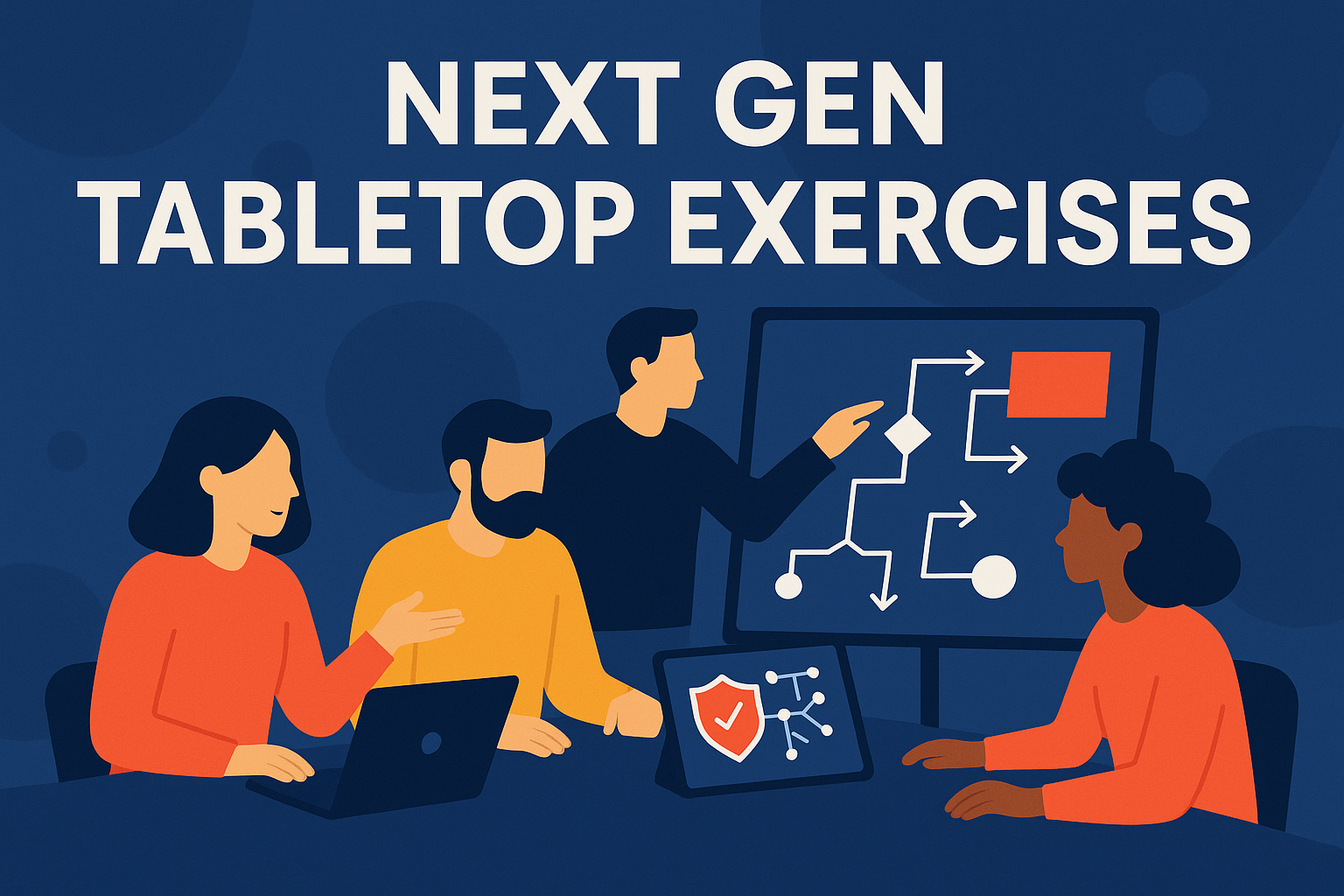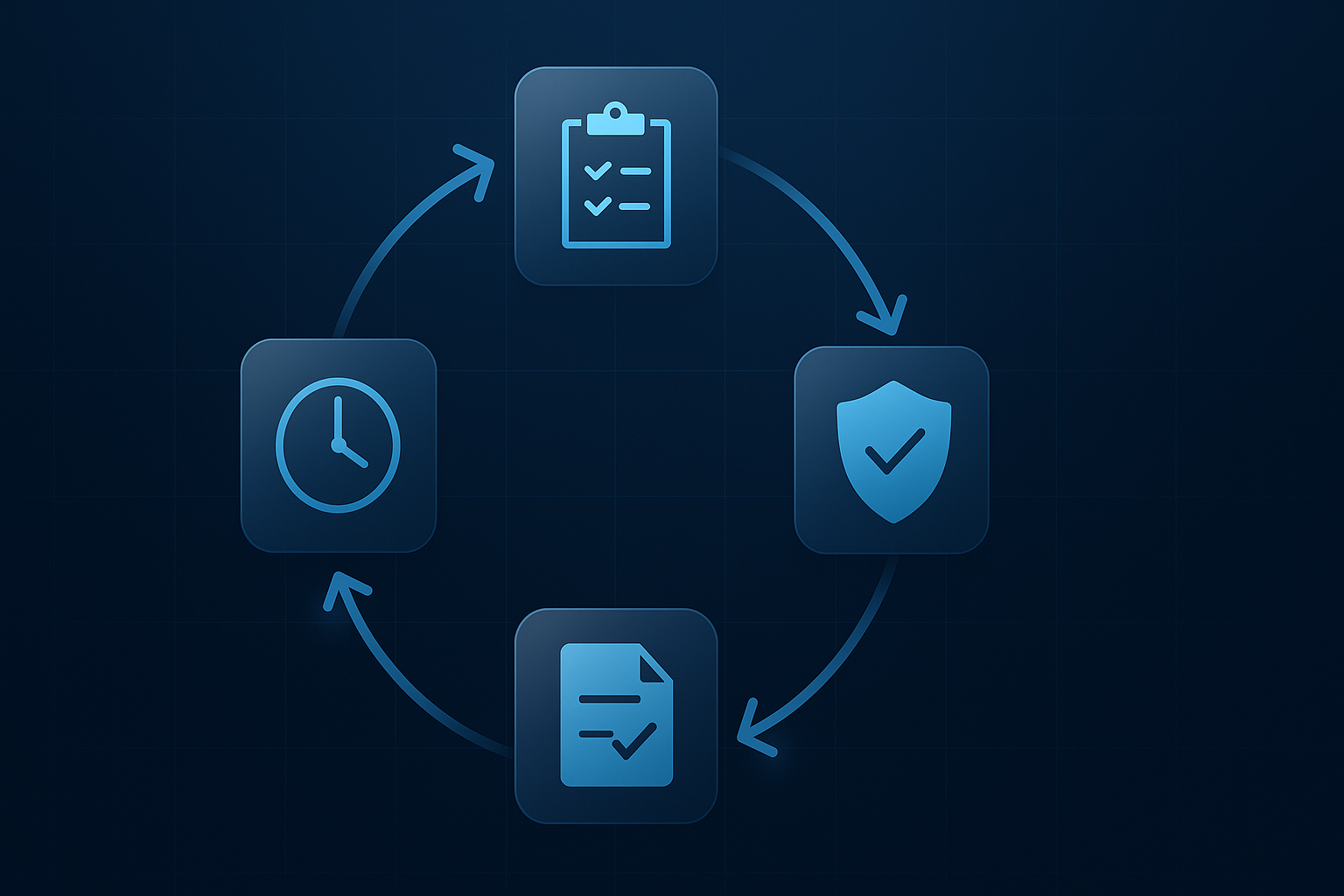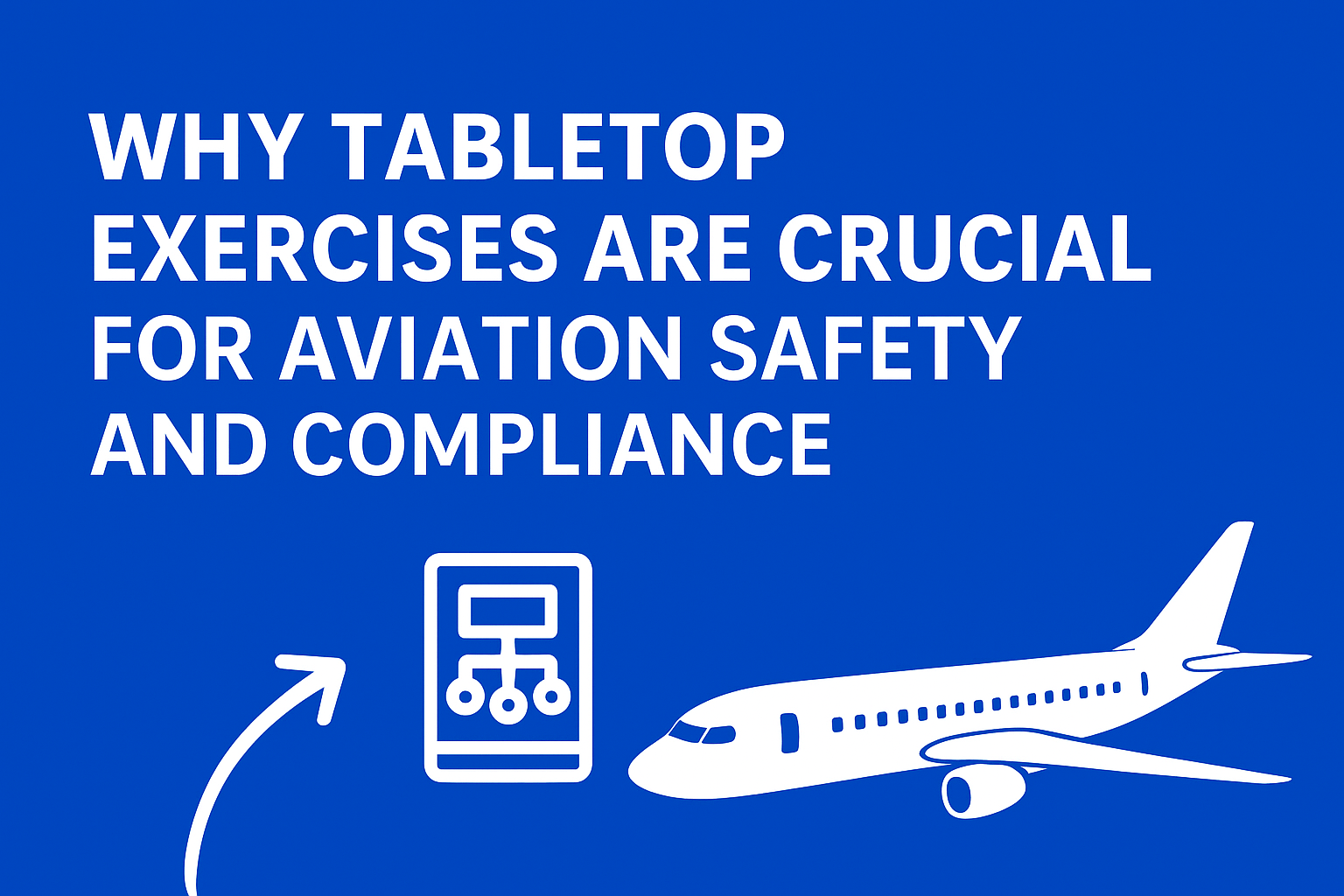Next-Gen Tabletop Exercises for Crisis Management
Enterprise leaders face an uncomfortable reality: traditional crisis management training often falls short when real emergencies strike. While organizations invest heavily in emergency response plans, many discover critical gaps only when it's too late to address them effectively.
Tabletop exercises (TTX) have long served as the cornerstone of crisis preparedness, simulating emergency scenarios to test organizational responses. However, conventional tabletops struggle to keep pace with evolving threats, particularly in cybersecurity and complex multi-department crises. The future demands more sophisticated solutions that can adapt to modern enterprise challenges.
Current Challenges with Traditional Tabletop Exercises
Traditional tabletop exercises face several limitations that reduce their effectiveness. Static scenarios fail to reflect the dynamic nature of real crises, where situations evolve rapidly and require adaptive responses. Many exercises also operate in silos, testing individual departments rather than cross-functional coordination that modern crises demand.
Documentation and follow-up present additional hurdles. Organizations often struggle to capture actionable insights from exercises, leading to repeated vulnerabilities and missed improvement opportunities. Without proper tracking mechanisms, lessons learned from tabletops rarely translate into meaningful policy changes or enhanced preparedness.
The Evolution of TTX Solutions for Enterprises
Next-generation tabletop exercise platforms address these shortcomings through advanced technology and strategic design. These solutions incorporate real-time scenario adaptation, allowing facilitators to modify exercises based on participant responses and emerging challenges.
Modern TTX platforms integrate with existing enterprise systems, providing realistic contexts that mirror actual operational environments. This integration enables more authentic decision-making processes and reveals genuine interdependencies that static exercises miss.
Cloud-based accessibility ensures remote teams can participate effectively, crucial for distributed workforces and global organizations. Advanced analytics capture detailed performance metrics, transforming subjective observations into quantifiable insights.
Enhancing Crisis Management and Cybersecurity Through Advanced TTX
Cybersecurity threats require specialized tabletop approaches that traditional exercises cannot provide. Next-gen solutions simulate sophisticated attack vectors, including multi-stage breaches and social engineering campaigns that unfold over extended periods.
These platforms test technical responses alongside communication protocols, ensuring IT teams and executive leadership maintain coordination during cyber incidents. Real-time threat intelligence integration keeps scenarios current with emerging attack methodologies.
Crisis management benefits from multi-scenario capabilities that test organizational resilience across various emergency types. Whether addressing natural disasters, supply chain disruptions, or reputational crises, advanced TTX solutions provide comprehensive preparedness assessment.
Benefits of Future TTX Solutions
Enhanced realism tops the list of advantages offered by next-generation tabletop exercises. Participants engage with scenarios that closely mirror actual crisis conditions, improving the transfer of training to real-world applications.
Comprehensive reporting capabilities provide detailed analysis of decision-making patterns, response times, and communication effectiveness. These insights enable targeted improvements rather than broad, unfocused training initiatives.
Scalability allows organizations to conduct exercises across multiple locations and departments simultaneously, reducing logistical barriers while maintaining consistency in training standards. Automated scenario generation reduces preparation time while ensuring fresh challenges for repeat participants.
Cost-effectiveness emerges through reduced facilitation requirements and streamlined administration. Organizations can conduct more frequent exercises without proportional increases in resource allocation.
Preparing Your Organization for Next-Gen TTX Implementation
Successful implementation requires careful planning and stakeholder buy-in. Organizations should begin by assessing current tabletop exercise practices and identifying specific improvement areas that advanced solutions can address.
Training facilitators on new platform capabilities ensures maximum value extraction from enhanced features. Change management strategies help participants adapt to more sophisticated exercise formats while maintaining engagement levels.
Integration planning addresses technical requirements and ensures compatibility with existing enterprise systems. Data security considerations become particularly important when exercises involve sensitive operational information.
Transforming Crisis Preparedness Through Innovation
The future of enterprise crisis management depends on sophisticated preparation methods that match the complexity of modern threats. Next-generation tabletop exercise solutions provide the realism, adaptability, and analytical capabilities necessary for effective preparedness programs.
Organizations that embrace these advanced TTX platforms position themselves to respond more effectively to actual crises while building organizational resilience through continuous improvement processes. The investment in next-gen tabletop solutions represents a strategic commitment to operational excellence and risk mitigation.
Ready to experience the future of crisis management training? Demo the Opsbook platform today and discover how advanced tabletop exercises can transform your organization's preparedness capabilities.






